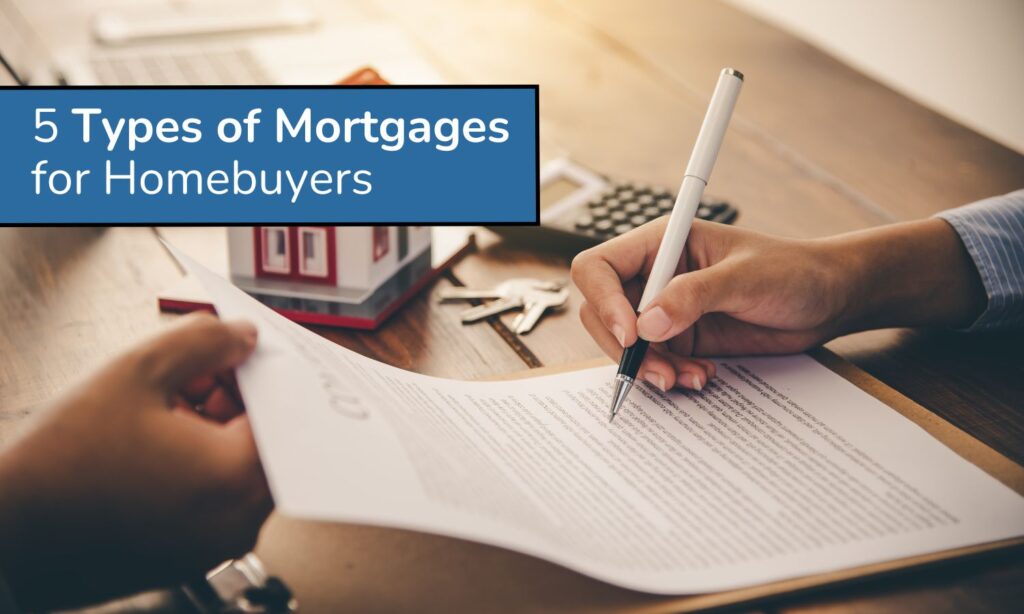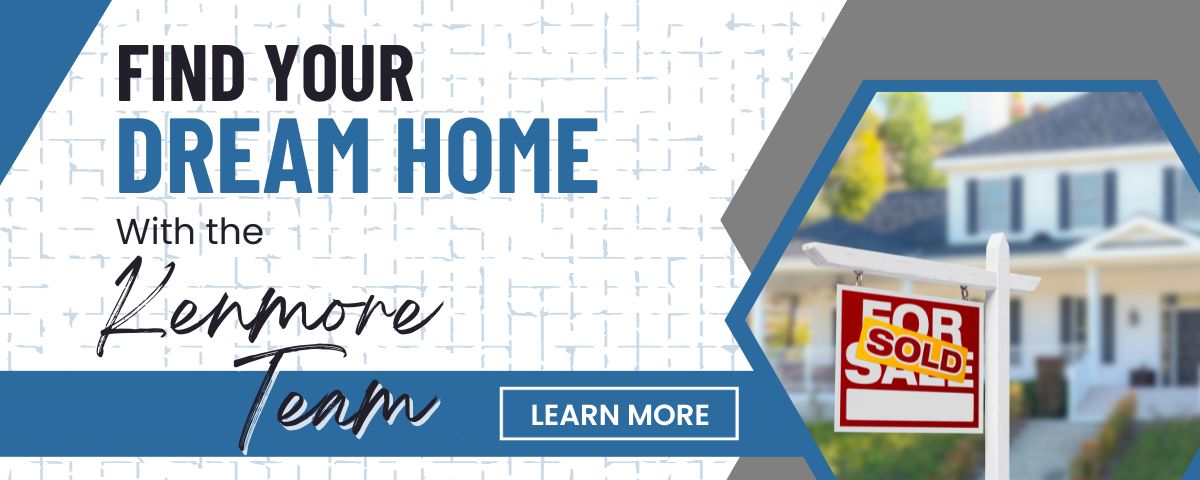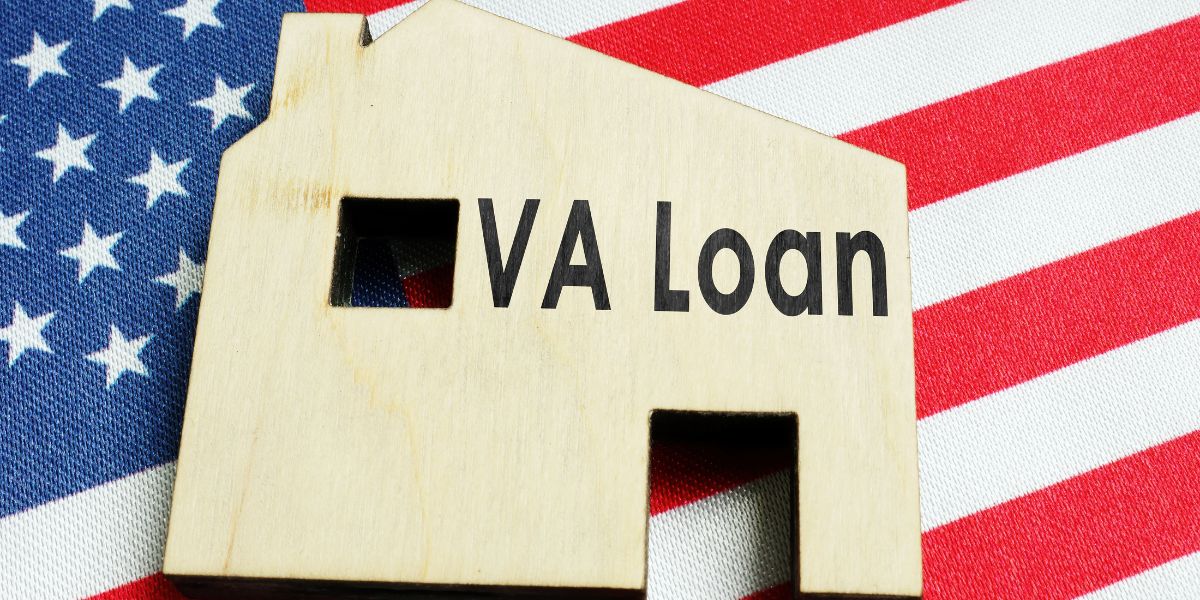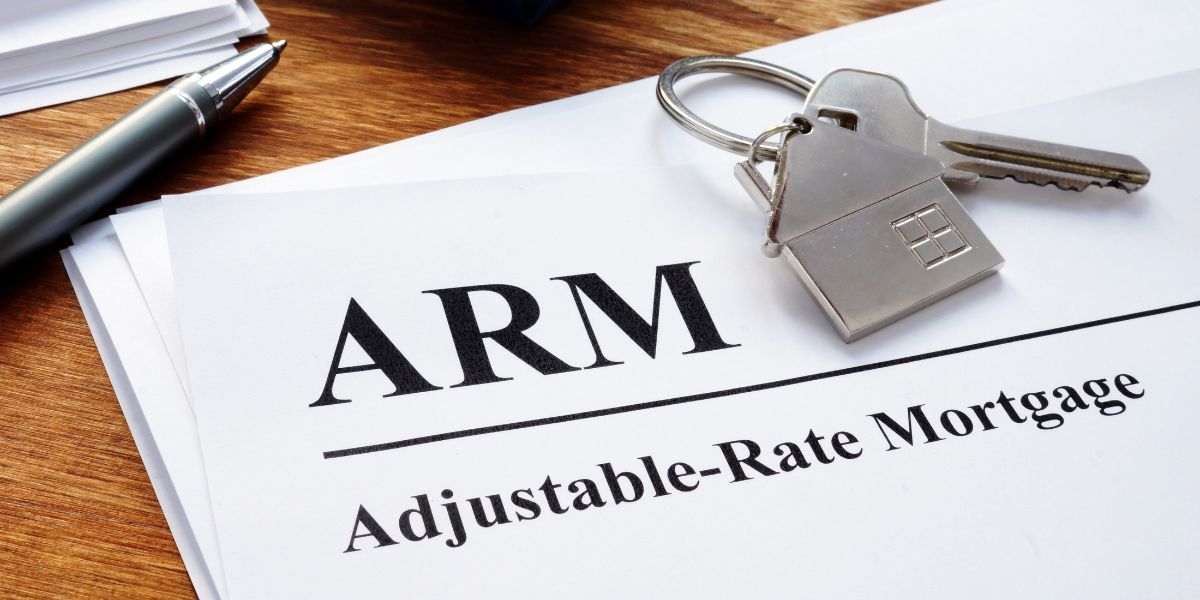Here’s a guide to five types of mortgages that will help you choose the best home loan.
Home loans come in many different types
Each type of mortgage has its own features and benefits.
- Conventional loans are best for those with high credit scores
- Jumbo loans are best for those with excellent credit who want to purchase a home that is more expensive.
- Borrowers with low credit scores or little cash to put down will benefit from government-backed loans
- Fixed-rate mortgages are best for those who prefer to have a monthly payment that is predictable and fixed for the entire loan term.
- Adjustable-rate mortgages are best for those who don’t plan to live in their home for a long time, want lower payments now or are willing to pay higher rates in the future.
1. Conventional Loan
The most common type of mortgage is the conventional loan. It comes in two varieties: conforming or non-conforming.
- Conforming loans. A conforming loan is one that “conforms” with a set Federal Housing Finance Agency standards. These include guidelines on credit, debt, and loan size. If a conventional mortgage loan meets these criterias, it is eligible for purchase by Fannie Mae or Freddie Mac. These two GSEs are responsible for a large portion of the mortgage industry.
- Non-conforming loan: These are loans that do not meet the FHFA standards. A jumbo mortgage, which is an amount above the conforming loan limits, is one of the most common non-conforming loans. GSEs cannot buy non-conforming mortgages. They are therefore considered to be a higher risk for lenders.
Cons of conventional loans
- Most lenders offer a variety of financing options
- Use it to finance your primary residence, vacation home or second home as well as investment or rental property
- You can put down as low as 3% on a fixed-rate conforming loan
Cons of conventional loans
- You must have a minimum credit score of 620 in order to qualify
- Mortgages with lower debt-to-income ratios (DTI) than other types of mortgages
- You will need to pay PMI premiums for a mortgage with less than 20% deposit
Who is the best candidate for conventional loans?
A conventional mortgage is the right choice if you have good credit and can afford a large down payment. Homebuyers prefer the 30-year fixed-rate mortgage.
2. Jumbo loan
In 2024, jumbo mortgages will be any loan that exceeds the conforming loan limit set by FHFA. In 2024 that would be any loan above $766,550 or $1,149.825 for higher-cost areas. These larger loans, which are not eligible to be bought by GSEs, can carry more risk.
The benefits of jumbo loan
- You can finance a home that is more expensive
- Interest rates on conforming loans are now competitive with those of conventional loans
- In areas where home values are high, this is often the only choice.
Jumbo Loans: The Pros and Cons
- Not all lenders offer this service
- Credit score requirements are often higher, usually a minimum 700
- Requirement for higher down payments, usually 10% to 20%
What are the best jumbo loan options?
A jumbo mortgage is the right choice if you want to finance an expensive home that exceeds the conforming loan limit.
3. Government-backed loans
The U.S. Government is not a mortgage lender. However, it plays a part in making homeownership more accessible by supporting three types of mortgages.
- FHA loans are insured by the Federal Housing Administration. They can be obtained with a credit rating as low as 580 with a down payment of 3.5 percent, or as low as 500 if you put down 10 percent. FHA loans require that you pay mortgage insurance, which increases your costs. These premiums are paid to the FHA as a way of protecting lenders from defaulting borrowers. You can’t borrow nearly as much with an FHA mortgage; the ceiling is lower than that of conventional conforming loan.
- VA loans: These loans are guaranteed by the U.S. Department of Veterans Affairs and are available to eligible members of the U.S. Military (active duty, veterans or National Guard, Reservists, etc.) as well surviving spouses. No minimum down payment is required, nor are mortgage insurance and credit scores. However, you will need to pay a funding fee at closing ranging between 1.25 percent and 3.3 percent.
- USDA loans: These loans are guaranteed by the U.S. Department of Agriculture. They help borrowers with moderate to low incomes buy houses in rural areas that qualify for USDA. The loans do not require a minimum credit score or a down payment, but they do charge guarantee fees.
Benefits of government-backed loan
- Credit and down payment guidelines are now more flexible.
- Borrowers who would not otherwise qualify for help
Cons of government-backed loan
- Additional costs for FHA mortgage insurance fees, VA funding fees and USDA guarantee fee
- Only available to those who are buying a house priced within the FHA loan limit, in rural areas or for service members.
Who is the best candidate for government-backed loans?
An FHA loan may be a good alternative if your credit score or the amount of down payment you have to make prevents you from being approved for a conventional mortgage. If you are buying a house in a rural location or qualify for a VA mortgage, this option may be more accessible.
4. Fixed-rate mortgage
Mortgages with fixed-rates have the same rate of interest throughout the loan’s life, so your mortgage payment (principal and interest) will always be the same. Most fixed loans are 15 or 30 years long, but some lenders have flexible terms.
Fixed-rate mortgages have their advantages
- Mortgage payment fixed monthly
- Budgeting is easier
The cons of fixed-rate mortgages
- Adjustable-rate loans usually have higher interest rates than the introductory rate
- Refinance your home to get a better rate
Who is the best candidate for fixed-rate mortgages?
A fixed-rate loan is the best option if you plan to live in your house for a long time, and you want a stable monthly payment (despite increases in homeowners’ insurance and property taxes).
5. Mortgages with adjustable-rate mortgages (ARMs)
As opposed to fixed-rate loans (FRLs), adjustable-rate mortgages have interest rates that fluctuate over time. With an ARM you will typically get a fixed rate that is lower for a certain period. The rate will then change, either upwards or downwards, at predetermined intervals, for the rest of the loan. For example, a 5/6 ARM has a fixed interest rate for the first five-years. The rate increases or decreases every six months based on the economic conditions until the loan is paid off. Your monthly mortgage payment will increase when your rate increases, and vice-versa.
Pros of Arms
- Reduced introductory rates
- If interest rates drop, you could pay less in the long run
Cons of Arms
- Risk of increased monthly payments
- Rate changes make it harder to budget.
Who is the best candidate for adjustable-rate mortgages?
You could save money on interest payments if you plan to leave your home after a few short years. It’s important that you are comfortable with the risk of your payments increasing if you still own the house.
Home loans of other types
You may also come across other types of loans when you are shopping for a mortgage:
Construction loans
If you want to build a home, a construction loan can be a good financing choice — especially a construction-to-permanent loan, which converts to a traditional mortgage once you move into the residence. These short-term loans are for people who have a large down payment.
Mortgages with only interest
In an interest-only loan, the borrower pays only interest for a certain period of time – usually 5 or 7 years – before making payments on both principal and interest. This loan will not allow you to build equity quickly because at first, all you are paying is interest. These loans are for people who can either sell their home or refinance or expect to be able to pay the higher monthly payments later.
Piggyback loans
The piggyback, or 80/10/10, loan involves two loans. One for 80 percent and the other for 10 percent. The remaining 10% will be paid in a downpayment. These loans are intended to save the borrower money on mortgage insurance. However, they also have two different sets of closing fees. This unconventional arrangement is best suited to those who will actually save money by using it.
Balloon mortgages
A balloon mortgage is a loan that requires a large amount of money at the end. Payments are usually based on 30-year terms, but for only a short period of time. If you are not prepared, the balloon payment at the end of the loan period can be difficult to manage. These loans are for people who can afford to pay a large amount of money at the end of the loan period.
Portfolio loans
Some lenders choose to hold onto their loans and keep them “on the books” or in their portfolio. They may have more flexible requirements.
Renovation mortgages
You can use a loan for renovations if you are looking to buy a house that requires major repairs. These loans combine costs for both purchasing and renovating into one mortgage.
Physician loans
Even with a well-paying job, it can be difficult for doctors to qualify for a conventional mortgage due to their large medical school debt. Physician loans are available to help doctors, nurses, and other healthcare professionals purchase a home.
Non-qualifying Loans
Non-qualifying loans or non-QM mortgages don’t comply with certain standards set forth by the Consumer Financial Protection Bureau. They therefore have more flexible income and credit requirements. It may be appealing to borrowers with special circumstances such as a fluctuating income. Some non-QM loan options come with higher interest rates and down payments.
What type of mortgage is right for you?
You may be able to get more than one mortgage depending on your finances and credit. You may also be able to cross some loan types from your list. If you or your spouse has not served in the military, you cannot get a VA Loan.
When deciding which mortgage type to choose, you should consider:
- What is your credit score? Which types of loans are you eligible for in terms of credit?
- What is your anticipated down payment? Do you require a loan with a low or no deposit? What about assistance with down payments? You can use gift money from friends and family.
- Your debt and income: After paying off your debts, can you afford a mortgage with the monthly income that remains?
- Your appetite for risks – Do You Need a Stable Monthly Payment? Expect to make more money in future?
- Your future plans: Do you intend to move soon? You want to pay your mortgage off sooner than 30 Years?
Compare mortgage lenders after you have weighed your options. Then, talk to a loan agent. You can find the right fit with their help.




